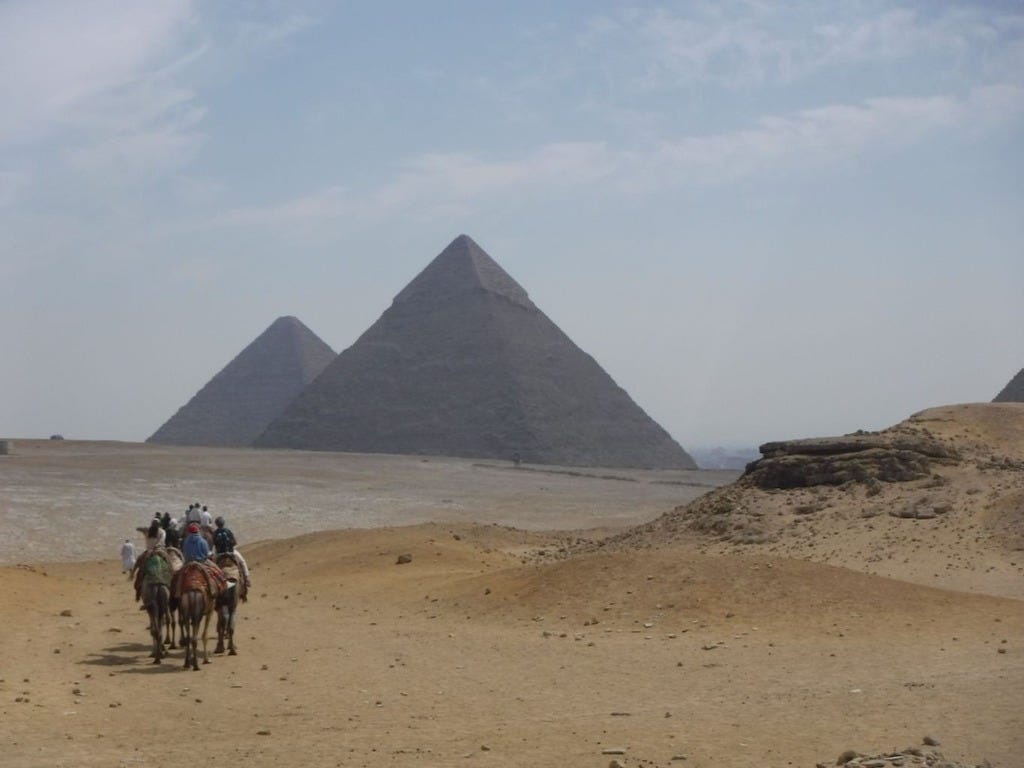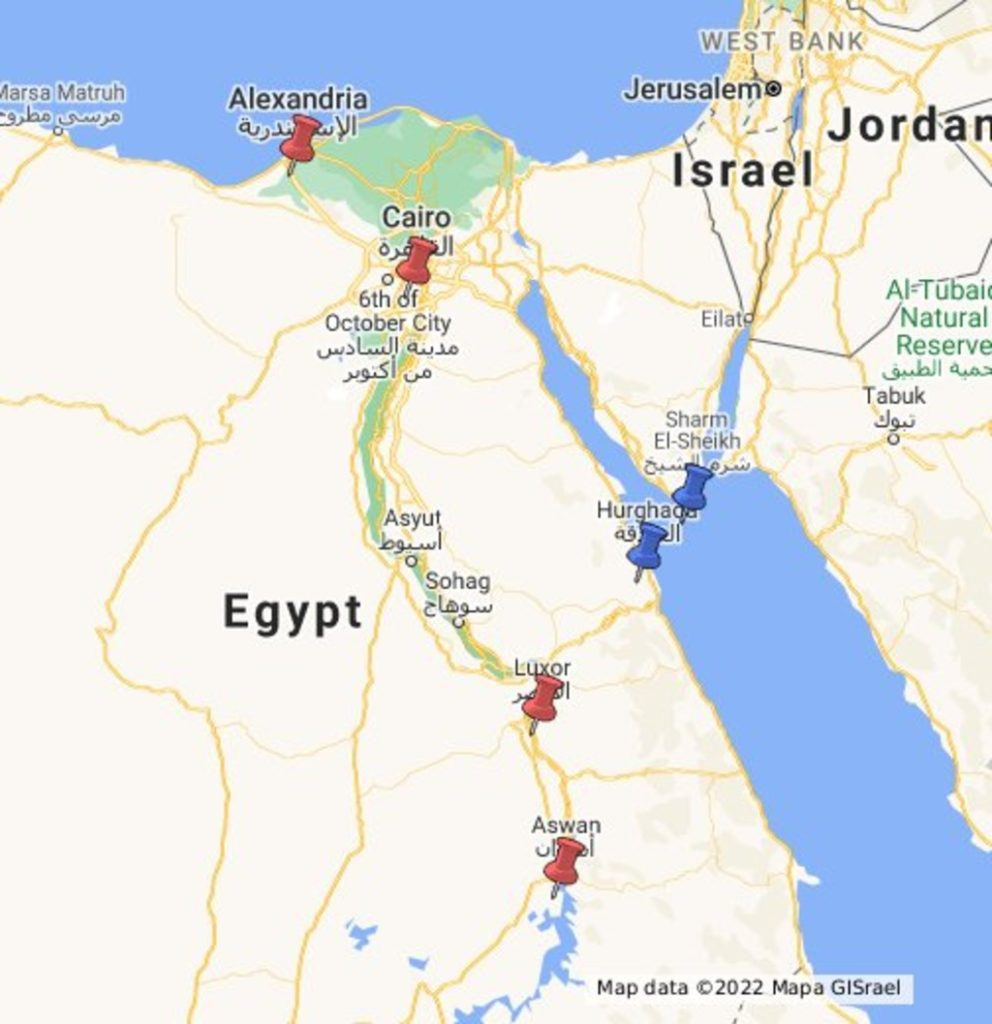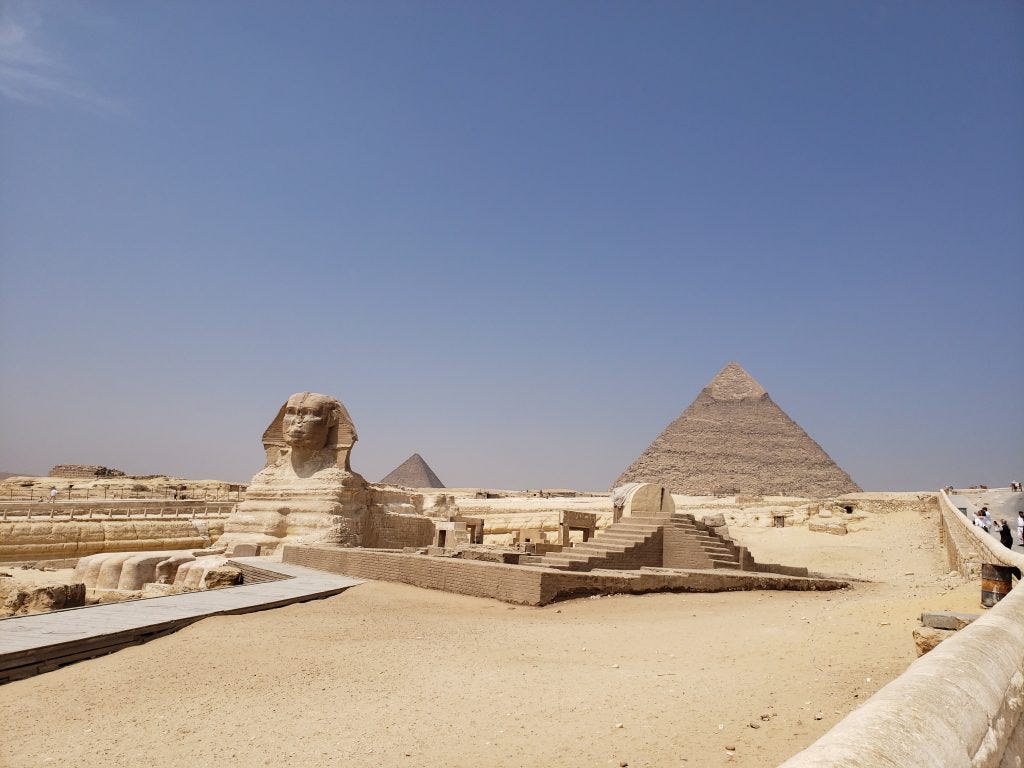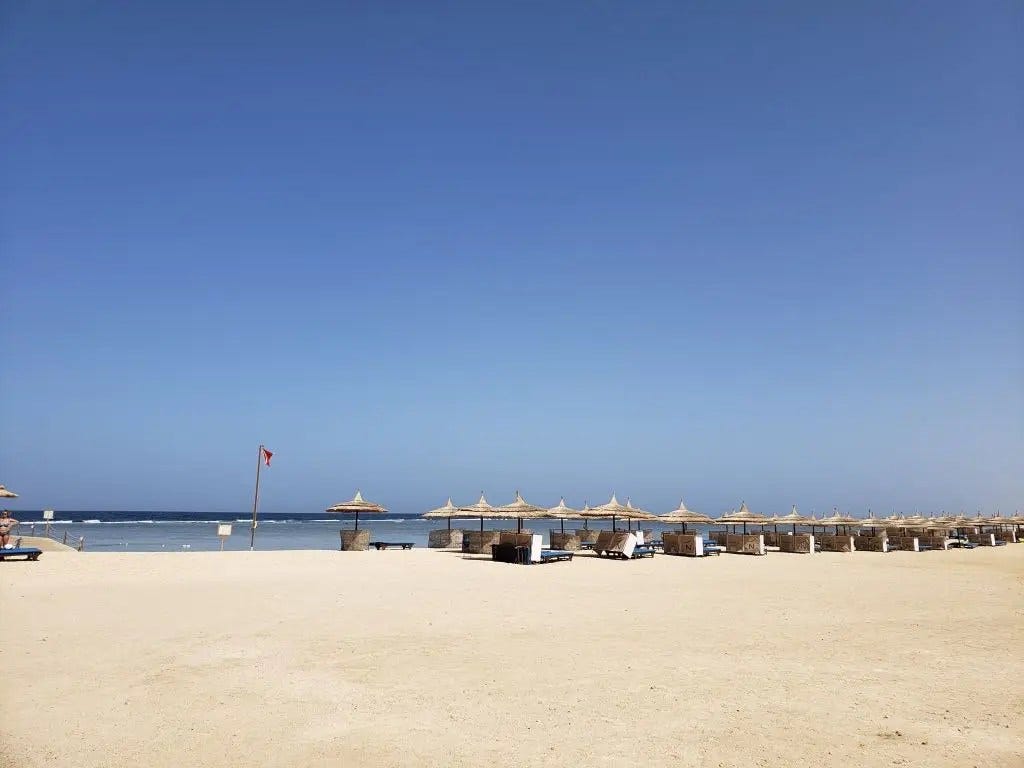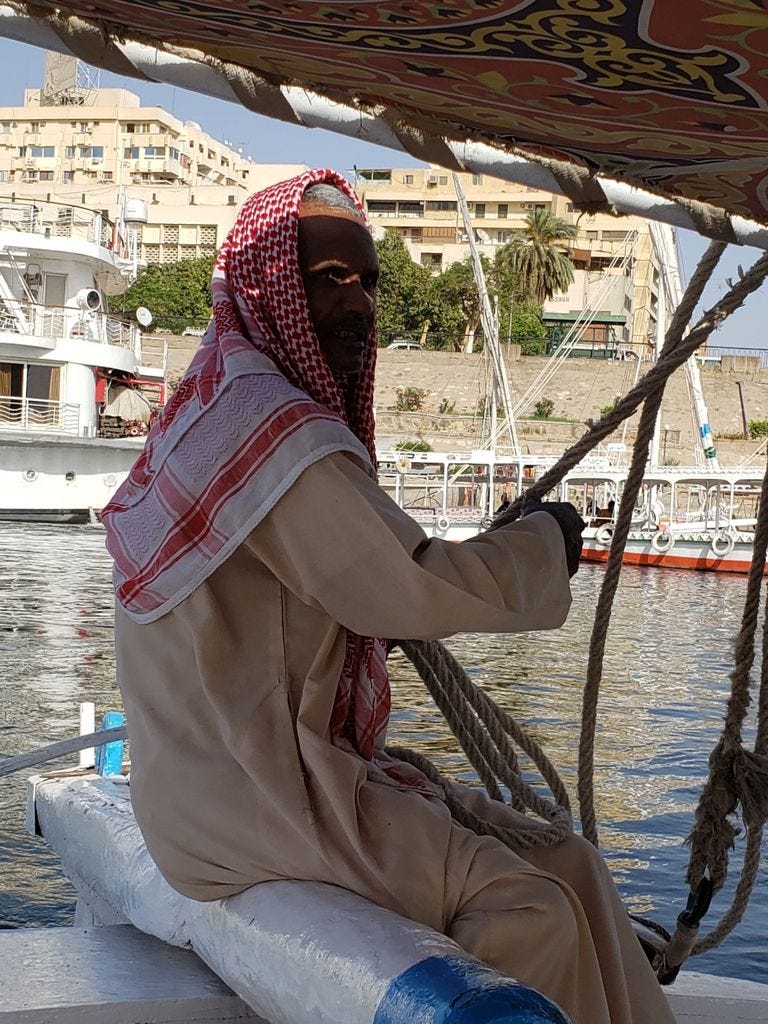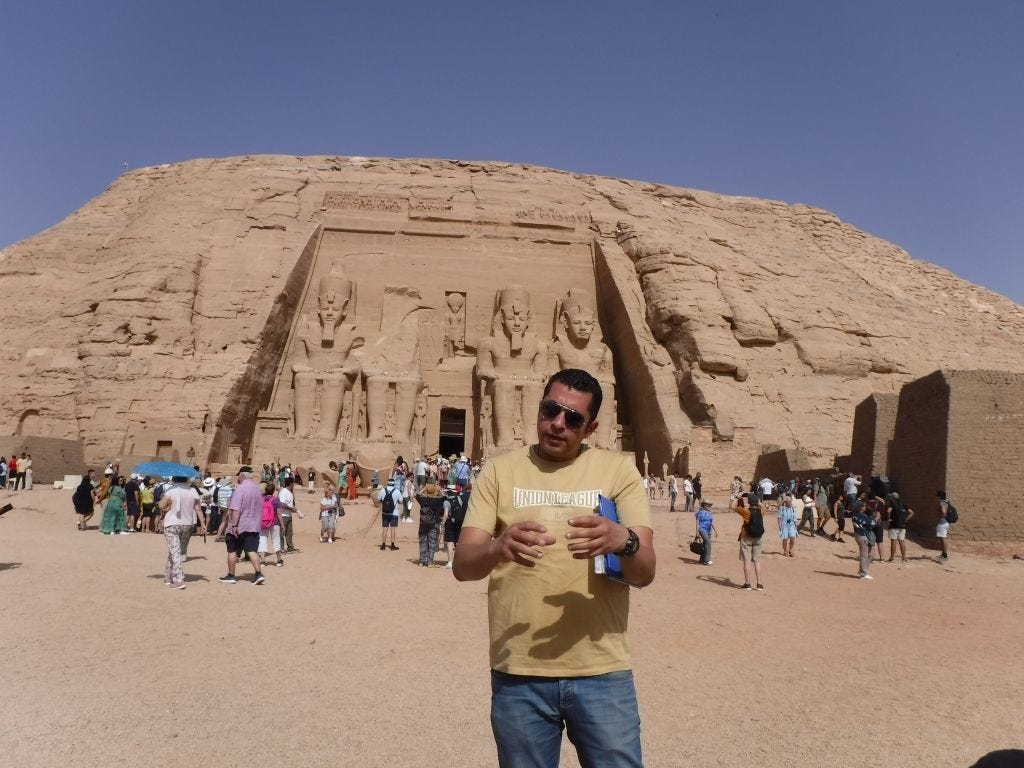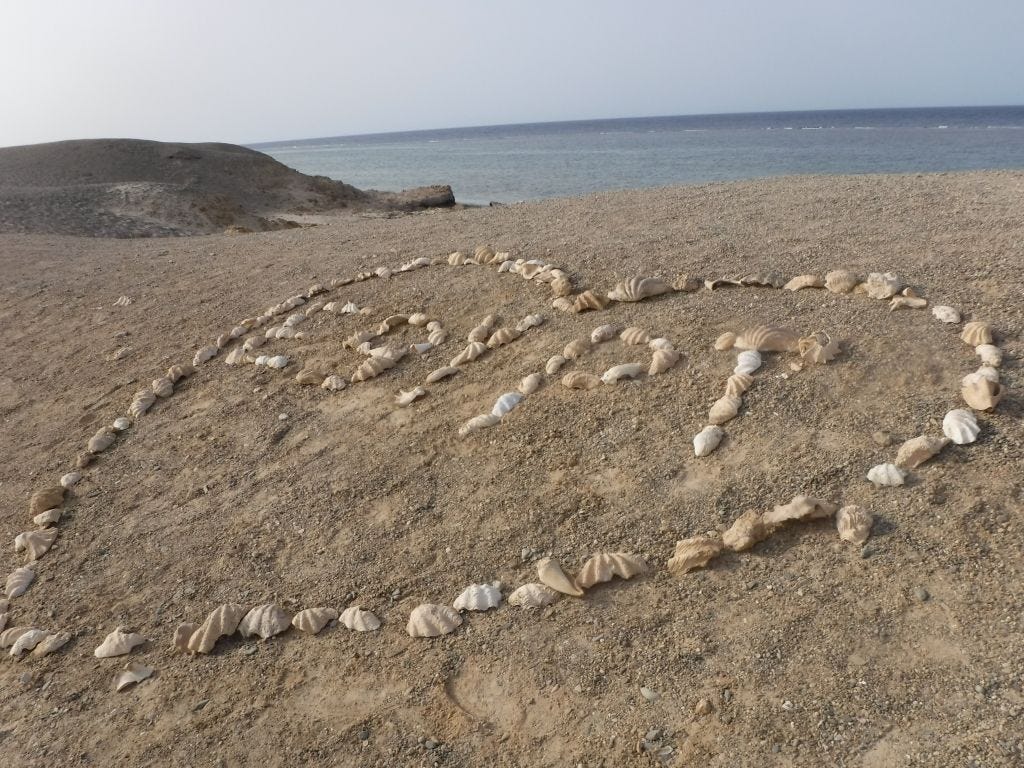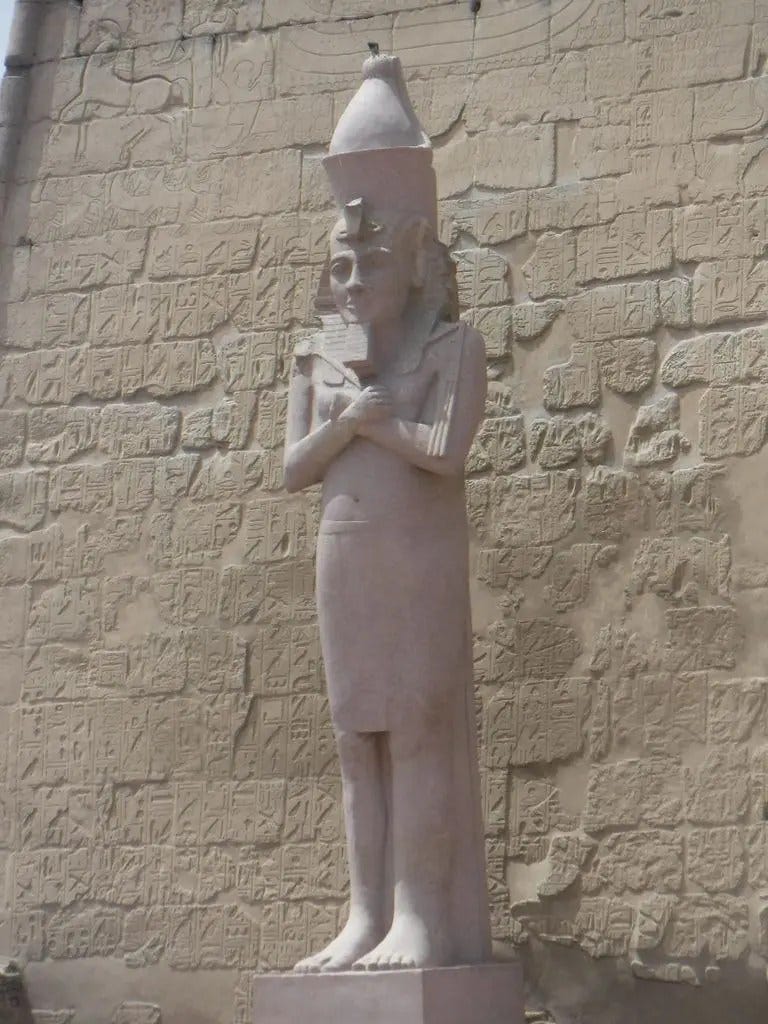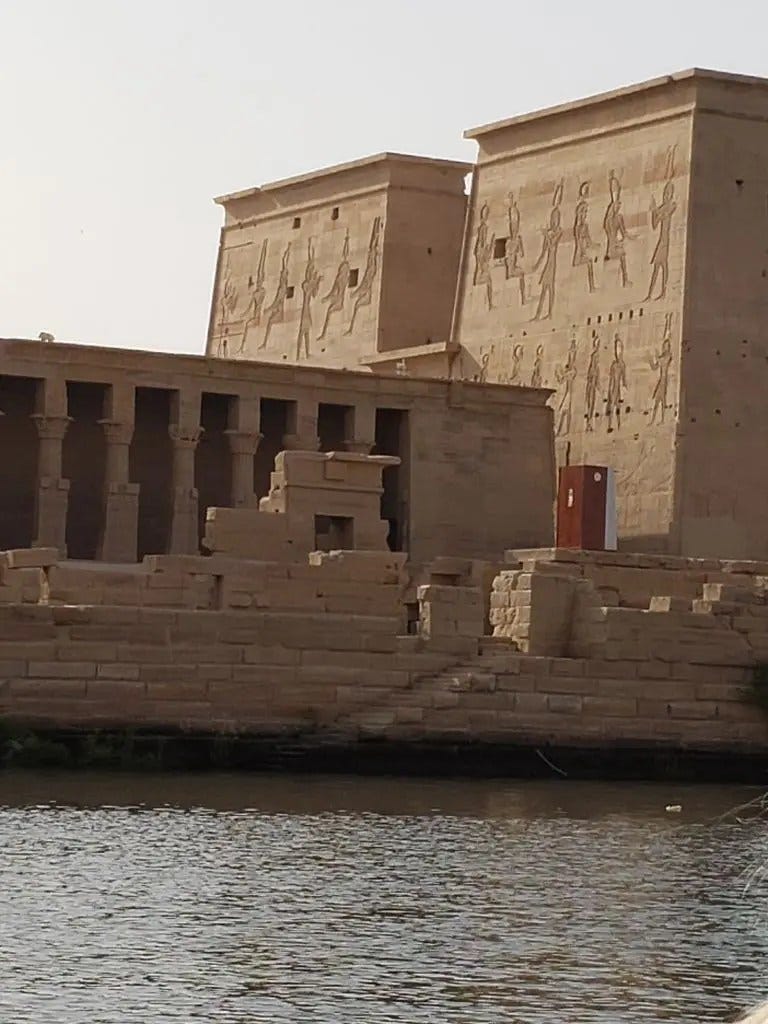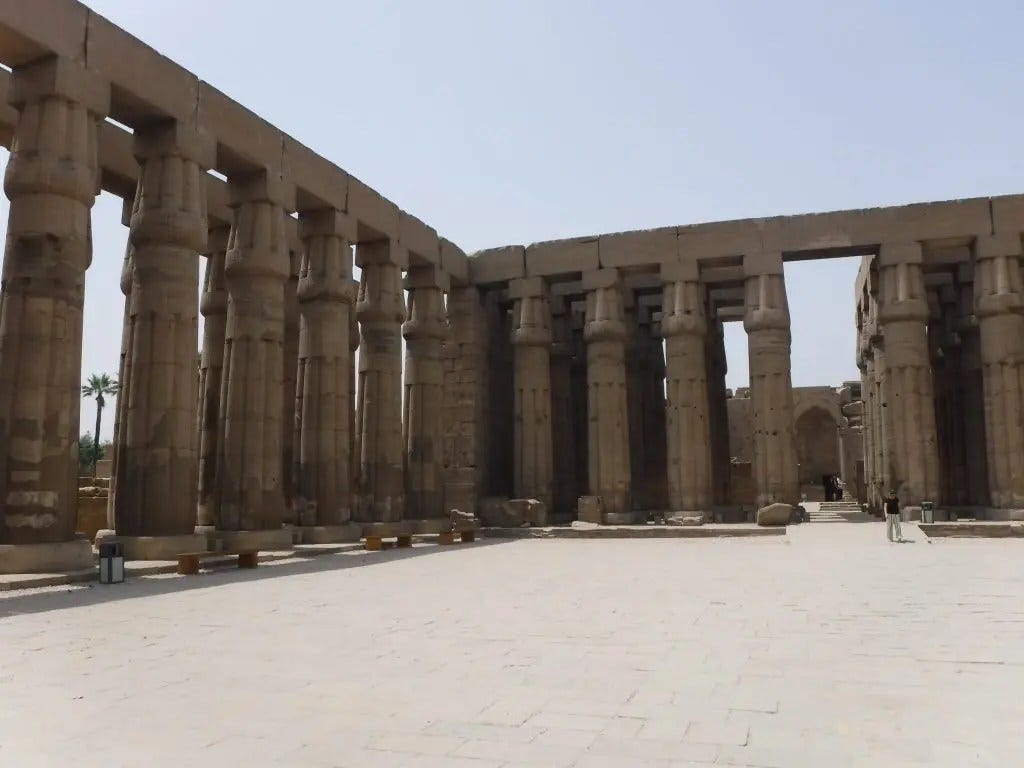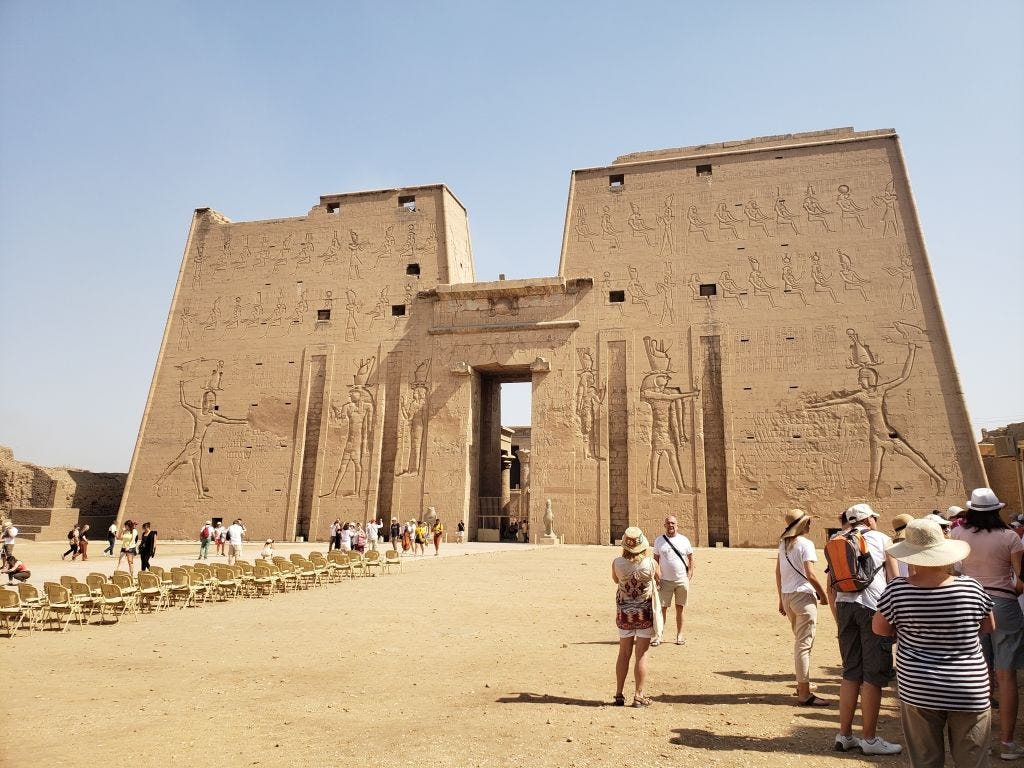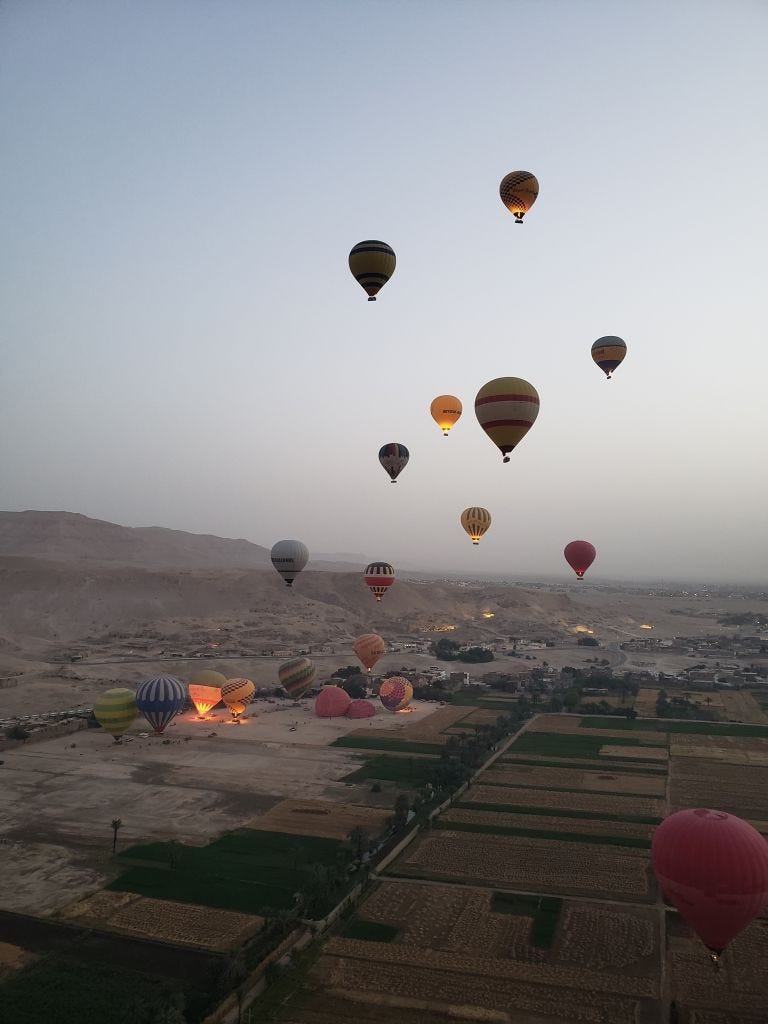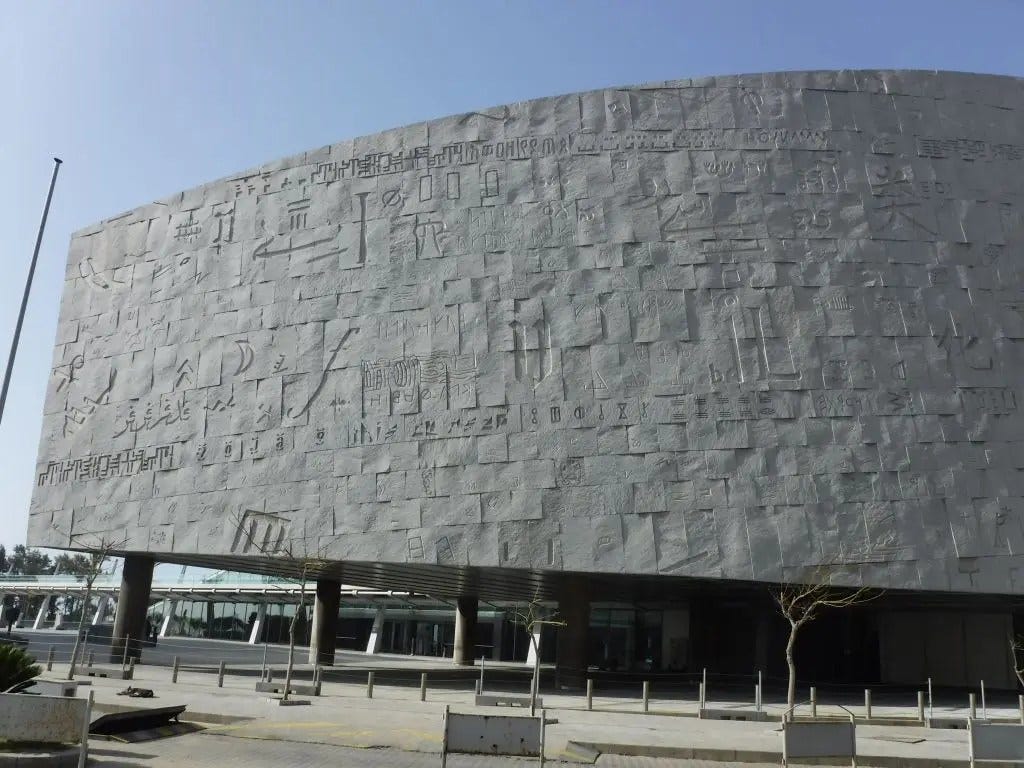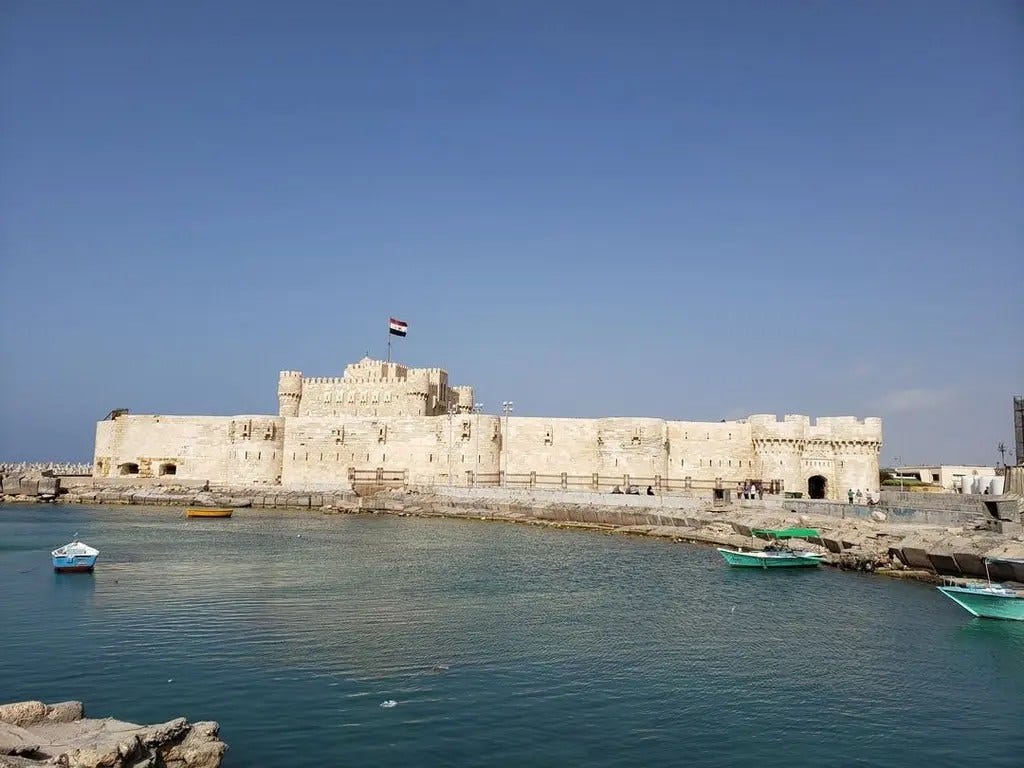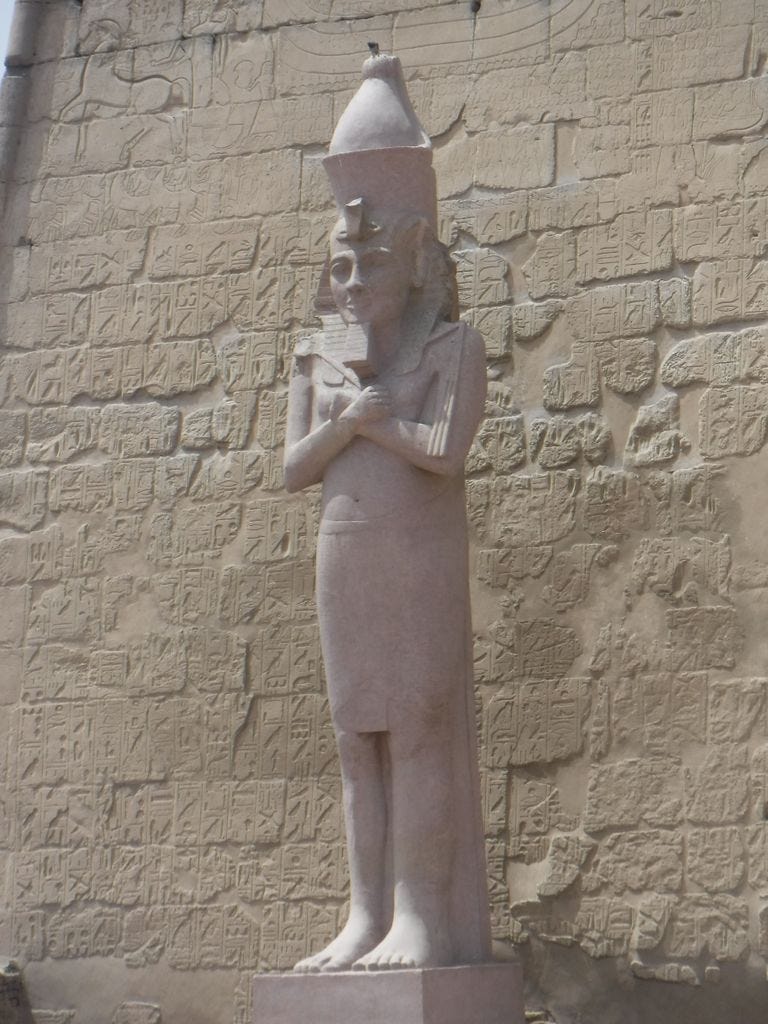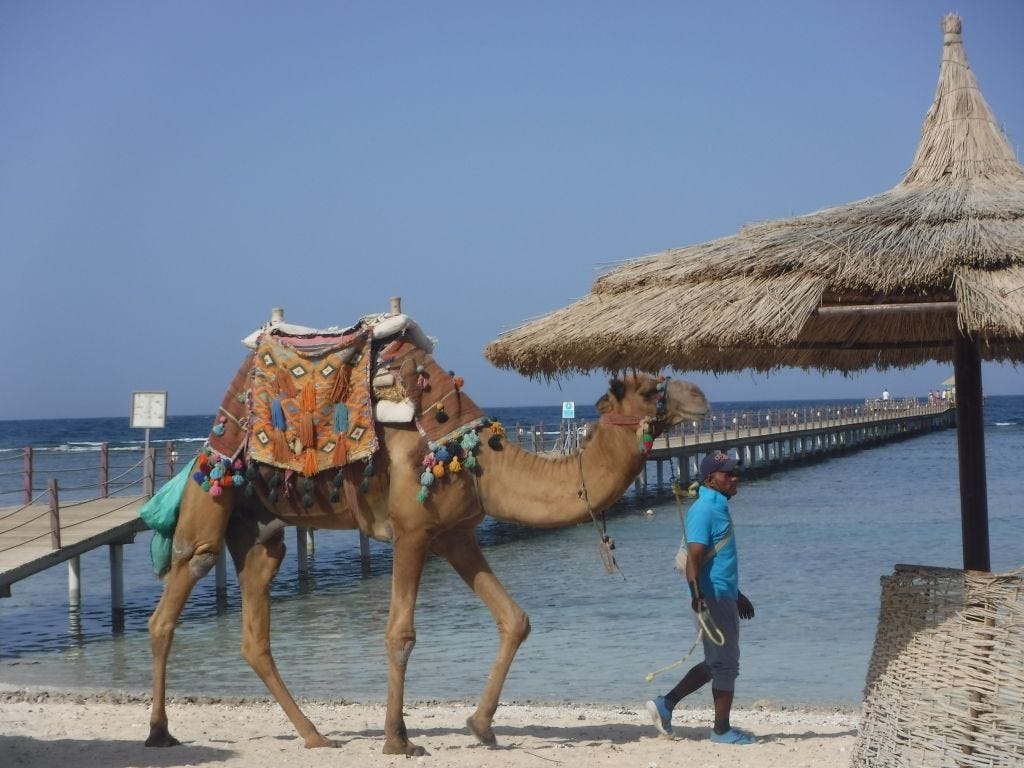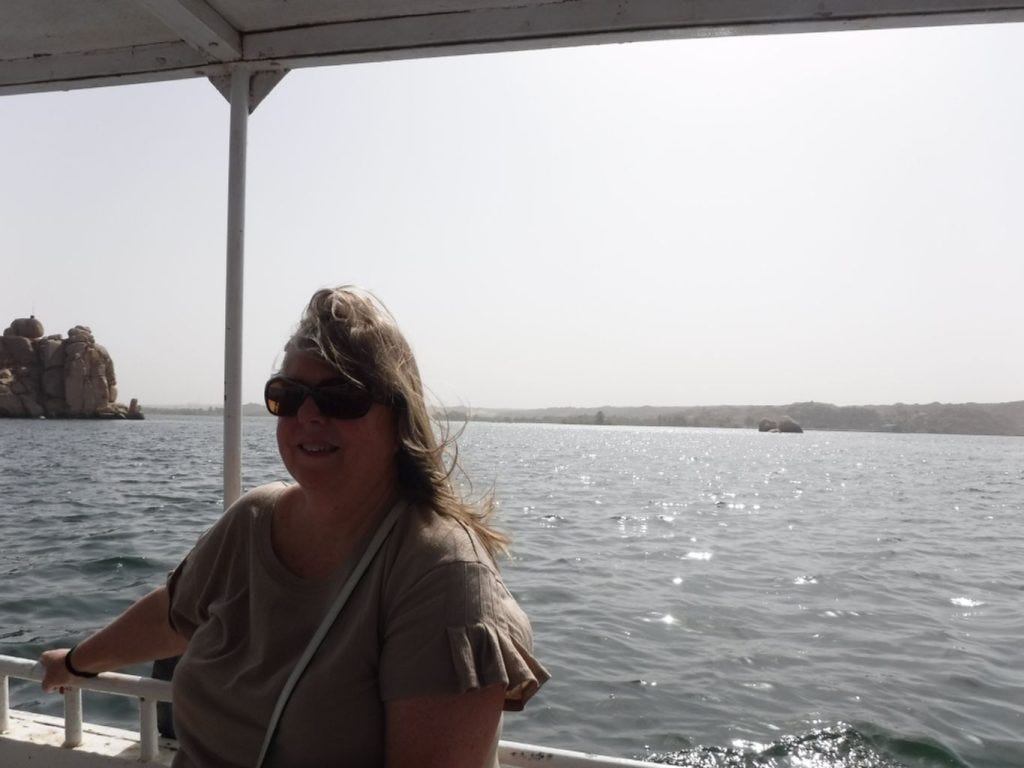Pyramids, Pharaohs, Kings, and Tombs. These are the things we associate with Egypt's ancient and mysterious country. For many, the thoughts of going to these magical places lie only in our dreams and on our "Bucket List." But what if you decide to take the plunge and make that trip to Egypt a reality? How do you plan your first trip to Egypt? What are the outstanding things you need to see in Cairo?
Well, nerves aside, planning your first trip to Egypt is similar to planning any other trip. It would be best to make a few pertinent decisions early in the planning process, and duration, budget, style, and choice of accommodation come to mind.
But first, let us identify what we mean by a trip to Egypt. For most, going to Egypt involves a linear path through the country. The Nile River provides a link between Cairo, Luxor, and Aswan and has been used for transportation between them for centuries. These cities are the most popular tourist destinations. In addition, Alexandria on the Mediterranean and Hurghada on the Red Sea are also famous.
Most of the other country regions are not popular and may involve more heightened security threats. Most people would not want to take that risk.
Now that we know where the most popular areas are, there are some important matters to discuss and perhaps some questions you may have about planning your first trip to Egypt. Below you will find several topics that will address these concerns, followed by some things to do for your Egypt itinerary.
How Long to Stay For Your First Trip To Egypt?
One of the first steps when planning your trip is deciding how long you will stay. If you do a google search for Egypt, you may become overwhelmed with information. There is so much history in this world region that multitudes of people have visited there and written articles. A growing number of tour operators have elected to represent Egypt and, as such, are providing their versions of what should not be missed.
For the most part, the city of Cairo is like many other cities with museums, attractions, restaurants, and shopping. However, some of the most famous sites are within minutes of the city center. The Pyramids of Giza (royal tombs for three different pharaohs) are worth spending extra time visiting. Certainly, 3 to 4 days would be the minimum stay for Cairo.
If you plan on taking a cruise on the Nile (and I would strongly recommend it), you should plan on at least a three to four -day trip. The cities of Luxor and Aswan are commonly included in these river adventures.
If beaches, snorkeling, and diving are your thing, then visits to the north coast near Alexandria and/or Hurghada should be accounted for.
The optimal time would be 14 days. For a great itinerary see the related post How to Spend 14 Days Touring the Best Egypt Landmarks.
In summary, for your first trip to Egypt, I would plan on staying a minimum of 7 days. If you want to visit all these places I have mentioned, a 10–14-day trip would be better.
How Much Will It Cost?
The budget for your trip to Egypt is dependent on many different factors. Flights are probably the most expensive part, so researching other options can alleviate those costs. Accommodation, transportation, and activities will also need to be included in your calculations.
One of the foremost things to consider is whether you will arrange your trip on your own or will you join a package tour? The level of luxury is also a factor in the cost of the trip. Do you prefer backpacking or hostel accommodation, or do you need luxury hotels and limo transfers? Personally, I would not do hostels in Egypt.
Most Nile River cruises are more luxurious, with 5* ratings. Taking a cruise like this will undoubtedly add to the cost of the trip. Whatever you decide, your budget will be based on your comfort level and travel style.
Package Tour or Independent Arrangements?
Many travelers enjoy the flexibility of making their travel arrangements for their vacations, and they book their flights, accommodation, and activities. However, Egypt is slightly different. Because the most popular tourist attractions and historical sites are on a linear path through the country, it can be tricky to get all the moving pieces to coordinate on time. Furthermore, it should be noted that touring Egypt on your own can be challenging due to restrictions imposed by the Tourist Police.
For example, if you start in Cairo and want to visit Aswan, there are three ways to get there. You could fly, take an overnight train, or take a cruise. But if you are taking a cruise, do you need to go both ways up and down the river? So, you are more likely to take a train and then meet on a cruise. If said cruise goes as far as Luxor, how do you get back to Cairo? Again, you could fly or take the train.
But if you book your modes of transportation and one is delayed, you are now forced to scramble to re-book your tickets. Depending on where you are, you may find it challenging to find an English-speaking agent. You will also discover that navigating the city of Cairo is not for the faint of heart. There are no traffic rules, few signs, and everything is in Arabic.
In my opinion, for your first trip to Egypt, it may be better to take a package tour that includes all the transportation requirements and the transfers between them. Keep in mind that you will most likely be traveling with your luggage when you are not in Cairo. If you are leaving Canada, I would highly recommend going with WingBuddy.com. From your first inquiry, through your arrival in Egypt, the tour, and your return to Canada, they take all the hassle out of your trip planning.
How to get To Egypt?
The best way to get to Egypt is to fly. Although international airports are located in Alexandria, Sharm el-sheik, Luxor, and Aswan, Cairo is the most common airport and you will find many more options for arrivals and departures. The most expensive time to fly is spring and fall, whereas July and August will be the cheapest.
No rail or ferries link Egypt with its neighbors, and driving is not recommended.
Many cruise ships stop in Alexandria and Cairo is usually listed as a cruise excursion from Alexandria.
Getting Around Within Egypt
Getting around Egypt can be a little complicated. In most areas driving your vehicle is not recommended due to security threats and chaotic traffic, as I have mentioned. Local trains are available, which will take you from Cairo to Aswan, Luxor, or Alexandria. They are relatively inexpensive, but you get what you pay for. If you can book first-class tickets, that is the way to go. The Go Bus will also take you down the east coast through Hurghada, and again, I suggest first-class tickets.
Locally in Cairo, Uber is the preferred method and is relatively safe, whereas taxis can be unpredictable. Many hotels have tour desks so you could book local excursions through them if you prefer.
If you plan to walk anywhere, be aware that Cairo drivers are fast and inconsiderate of pedestrians. Crossing the street can be a challenge, if not dangerous.
When to Visit?
One of the things to consider when planning your first trip to Egypt is when to go. Although Egypt lies north of the equator, its temperatures during the summer months can be scorching! If you plan to visit the outdoor tombs and historical sites, the heat radiating from these ancient sites can be unbearable. The best time to explore these ruins and archeological sites is in the winter months between December and February. This is HIGH season, and it is mainly sunny with very little rain.
However, the winter months can be pretty chilly for indoor Venues (including hotels) as many buildings do not have heating systems. Alexandria tends to be damp and humid.
In the summer months between June and August, the LOW season, the heat is scorching, and many tourists and locals head to the beaches of the Red Sea Resorts to escape. The weather is cooler on the Mediterranean, but the coast is more crowded, and is harder to find hotels.
SHOULDER season (March-May and September-October) is the best time to go. Crowds are lighter, and tours and accommodations are easier to find.
Places To Visit
Egypt is such a diverse and beautiful country. There are many highlights to include on your Egypt itinerary. As Egypt's history exceeds almost 5,000 years, it would be impossible to mention everything.
Cairo would be the place to start.
Some must-see highlights around Cairo could include:
Pyramids of Giza / Sphynx
Egyptian Museum of Antiquities
Grand Egyptian Museum
Khan el Khalili Souk
Coptic Cairo
Mosque of Muhammad Ali
Saqqara Pyramid
For addition information on things to do in Cairo, Get your Guide has some great options.
The main tourist regions outside Cairo are Aswan, Luxor, Alexandria, and Hurghada.
As mentioned previously, the best way to see all these regions would be to take a Nile River cruise for a few days or take day trips out of Cairo to Alexandria and Hurghada. Detailed itineraries can include these places if your trip is more extended duration.
Be sure to check out my post on the Luxor balloon Flight.
Where to Stay?
When you are considering where to stay in Egypt, you need first to determine where you will be going. For most people, Cairo will be the starting point.
Cairo
One of the best places to stay in Cairo is the Radisson Blu Hotel – Heliopolis District. This is a four* hotel with a rooftop pool that offers panoramic views of Cairo. The tour desk can arrange excursions to the Pyramids and other attractions. This is the perfect place to stay closer to the airport and further out of the downtown area.
Jimmy Pyramids View is an excellent choice if you want to get close and personal with the pyramids. The hotel is a 5-minute walk to the Sphynx and 1km from the Giza Pyramids. The roof terrace has a direct view for you to remember your first trip to Egypt!
If you prefer to stay in the city center, the Ramses Hilton Hotel & Casino would be a great option. This hotel overlooks the Nile River and is a 5-minute walk from the Cairo Museum. There is plenty to keep them busy in the kid's club if you are traveling with children. Or if you prefer to shop after a day of touring the ruins, you can do that too.
If your trip to Egypt includes stays in Luxor, Alexandria, Aswan, or Hurghada, great hotels can be found through Booking.com.
Summary
The history of Egyptian culture has been intriguing humans for centuries, and it will continue to attract visitors for centuries more. With your newfound knowledge of how to plan your first trip to Egypt, you are well on your way to discovering the Pyramids, Pharaohs, Kings, and Tombs that have become some of the most popular tourist destinations in the world.
Set your fears aside and embrace the culture of a world gone by. Whether Temples, Mosques, Kings, or Pharaohs attract your attention, you will never forget your first trip to Egypt.
Check out some of the frequently asked questions to help guide you through the planning process of your first trip to Egypt.
Frequently Asked Questions for Your First Trip to Egypt
What to Wear in Egypt?
It goes without saying that Egypt has attracted visitors for centuries. However, being a Muslim country, dressing conservatively would be appropriate. While in the beachside resort areas, you will see people wearing skimpy outfits, but it would be advisable for more coverage in the urban areas. Women could be subject to getting unwanted attention or offending local etiquette.
Specifically, it is good to wear loose-fitting clothing made from natural materials like cotton or linen to help keep you cool. Women should cover their shoulders and cleavage and avoid exposing their backs, and some mosques may require a headscarf upon entrance.
Men should have longer-length walking shorts rather than shorter sport short. Low-heeled, closed-toe shoes would be best for walking within the archeological areas are the terrain can be uneven.
What Currency Is Used in Egypt?
The Egyptian currency is the Egyptian pound. However, many restaurants, tour operators, and larger hotels will accept Euros or US dollars. Local attractions and markets will only take Egyptian Pounds, and credit cards are not always accepted. It is advisable to carry cash for local attractions and markets, and ATMs are abundant for purchasing Egyptian Pounds. Small denominations will be required for tipping, especially in the restrooms.
More significant attractions may accept USD at the current exchange rate, and many will accept credit cards.
Do I Need a Visa?
All visitors to Egypt are required to have a valid visa. Citizens of many countries, including the United States, Canada, Australia, and most European nations, are eligible for an electronic visa online (eVisa). This eVisa allows you to visit Egypt for up to 30 days. The cost of the eVisa is about $25 USD. For many, you can no longer purchase said visa upon arrival at Cairo airport.
What language is spoken?
Although Arabic is the official language in Egypt, English is widely spoken in larger cities and tourist areas. However, if you venture off into the desert or more rural regions, English will be limited, and you may have to develop a version of sign language to communicate. Electronic translators will only work if you have internet, and many rural areas may not have that luxury.
Is Egypt Safe to Visit?
The topic of tourist safety in Egypt continues to be one of the top questions when planning a trip to Egypt. No one wants to experience a personal safety or security issue while traveling abroad. However, if you are careful and respect local advisories, you can have a safe experience in Egypt.
Presently, keep to the main tourist areas of Cairo, Aswan, and Luxor along the Nile River or the popular seaside communities of Alexandria and Hurghada. You will likely not have an issue with security. However, you may find that police or armed escorts accompany tourist groups in certain areas. This can be disconcerting on your first trip to Egypt, but it is for your safety.
It is not advisable to travel into the desert, the Sinai Peninsula, or towards the border with Libya, where increased tensions have increased due to terrorism.
For personal safety, be aware that pick-pockets are abundant in Egypt. When you venture out to visit attractions, carry minimal belongings to avoid being a target for pick-pockets.
Women should not travel alone, if possible and especially at night.
Can I drink the Water?
Absolutely NOT!! Under any circumstances, do not drink tap water in Egypt. Furthermore, be cautious about using it for brushing teeth or rinsing any food product. The local water can contain microbes or bacteria that can cause sickness if you are not accustomed to it. Diarrhea is not your friend when you are on vacation. (Or at any other time for that matter) Be careful with local produce that could have been washed with the water as well. Ice in drinks also falls into this category.
Your best bet is to purchase bottled water which is inexpensive and easy to find. Be sure to check that it is still sealed as a local scam is to re-fill water bottles.
Do I need Vaccines?
Several vaccinations are recommended for travel to Egypt. The most important of which right now is the COVID-19. Egypt has a very low vaccination rate compared to many European and North American countries, so COVID-19 is still prevalent. Although many attractions are outdoors, keeping your distance and wearing a protective mask are recommended, and indoors, it is still a requirement in most areas.
Other recommended vaccinations include Hepatitis A and Typhoid to prevent food and water-borne diseases and Yellow Fever from preventing illnesses carried by mosquitoes. If staying in the popular areas, you may be safe without them, but be advised not to drink the water. It is best to avoid contact with animals if possible.
Do I Need Insurance?
Insurance is entirely a personal choice—many employers' group insurance covers some travel insurance costs and some credit cards. However, given that COVID-19 is still prevalent in Egypt, I would strongly advise that having a good insurance policy would be a wise choice. A policy that covers cancellation prior to the trip should be considered while still in the pandemic.
Travel medical insurance is always advisable since a mishap is always a possibility. In Egypt, uneven ground is everywhere, so tripping hazards are frequent. Medical insurance should cover incurred expenses should you require medical attention while on vacation.
Is Tipping Expected?
Tipping is one of those things that is very common in North America but less common in other parts of the world. In Canada, for example, most food and drink establishments will automatically add a 10-15% gratuity to the bill. If you choose more or wish to decline, it is an option. Worker's wages are slightly lower to allow for the expected tips. In Australia, tipping is not common, and the wages are adjusted accordingly.
However, in Egypt, tipping is essentially most of a person's wages. No tips = no money. It is just that simple. Anyone in the service or tourism industry relies on these tips to earn a living. Put simply, please DO tip anyone that assists you. This could include baggage porters, tour guides, washroom attendants, etc. If someone asks if they can take your picture, they expect a tip. Please oblige them accordingly. (Be cautious about handing over your phone or camera, though as it could be a pick-pocket)
For other travel tips, check out this post: Top 8 Egypt Travel Tips You Should Know.
Free Subscribers:
If you are looking for Egypt trip planning checklists and trackers, I have these available through my online store.
Paid Subscribers:
These products are FREE on my Digital Products Page.




